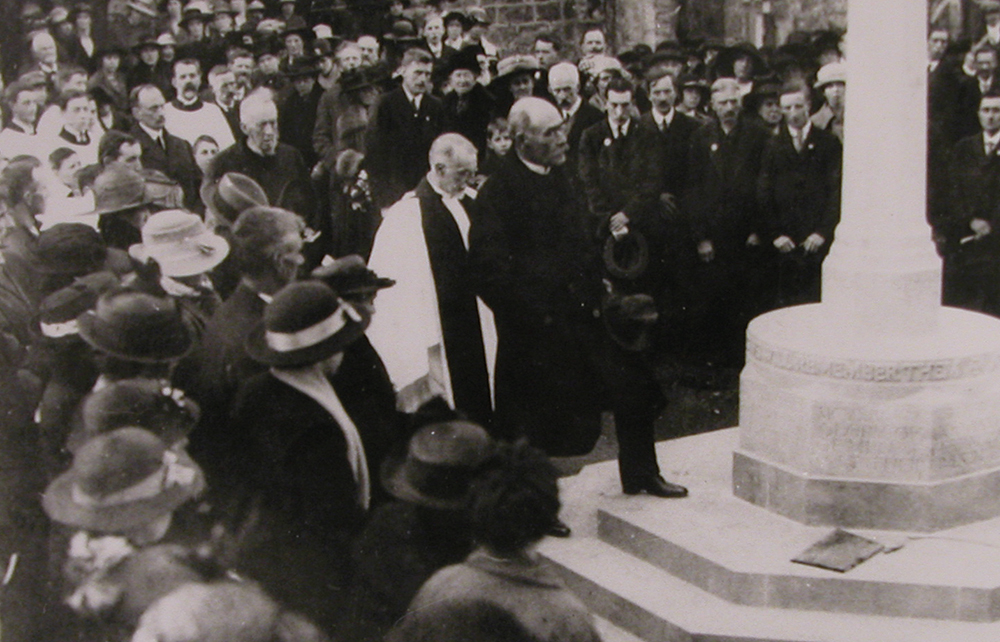
This Sunday, in my village of Etchingham, East Sussex, we will gather around our war memorial. It is a fine monument, designed by Sir Herbert Baker, with the names of the dead inscribed around an octagonal base. There are no famous names upon it: indeed, there is only one commissioned officer, a Second Lieutenant (who had once been a commercial clerk, working from the age of 14). The rest were mostly young farm labourers: the oldest, aged 44, had been a ‘domestic chauffeur’.
The rural working classes leave little in the way of records. These men left no ‘voices of the Great War’. But though mute, they are not inglorious; and one of the most eloquent writers of the era spoke on their behalf. On 28 April 1920, in ‘rain, sleet and bitter wind’, Rudyard Kipling made the speech at the unveiling of the memorial.
It seems fitting to read the speech out again this year, to mark the restoration of the memorial with money from the War Memorials Trust. The Clipsham stonework has been cleaned and repaired and is golden again, as it was on that rainy day in 1920. The work was done by Gordon Newton: war memorials, old and new, have been his life’s calling.
The passion of men such as Newton for these silent stones may seem strange to a modern generation. Nowadays, museums and exhibits are expected to be ‘interactive’, ‘immersive’ and ‘hands-on’. Labels bombard visitors with information and exhortations, preach and jabber.
Kipling knew the strength and importance of silences. As a master-craftsman of words, he urged the importance of cutting back, deleting and cutting back again. His speech for the unveiling is moving partly because of what it does not say, and his awareness of what words cannot do. ‘We all know that grief cannot be cheated,’ he begins, starting with a bleak negative. And behind the words that follow, unspoken, are the dark reservoirs of his own grief.
‘I have just come back from the invaded areas of France,’ he says, and evokes the devastation – remnants of woods and forests ‘burnt and gassed and shelled into fringes of a few withered sticks like twisted hop-poles’ – from which England has been saved. What he does not say aloud is that his son, Jack, had been killed in that part of France, aged 18, in his first action.
Jack’s body was not found in Kipling’s lifetime. The man who could have no gravestone for his own son understood the importance of a physical memorial. It underlay his tireless work for the War Graves Commission (‘You see, we shall never have any grave to go to…’). Kipling was responsible for the epitaph ‘Known unto God’, inscribed upon the tomb of the Unknown Soldier.
Kipling urges his hearers of 1920 to probe the silence: such reticence was ‘natural during the war’, but there is a danger that in peace ‘we may neglect to learn and understand the full stretch of their heroism’. Etchingham, he says ‘has done wisely in making speed to erect her memorial… while the tales are fresh and undimmed, that it may serve as a witness to the dread reality of them’.
No comments:
Post a Comment